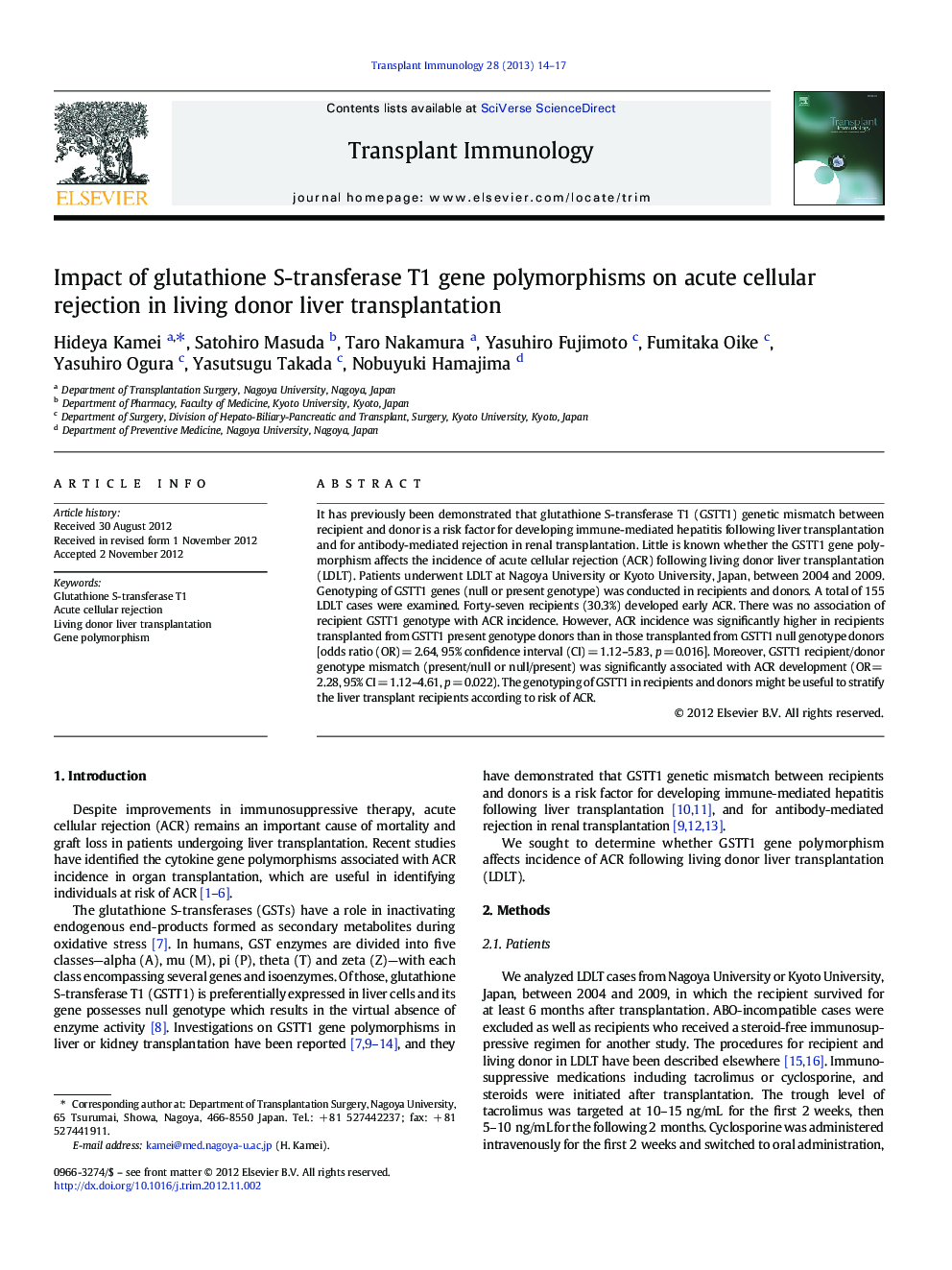| Article ID | Journal | Published Year | Pages | File Type |
|---|---|---|---|---|
| 3392105 | Transplant Immunology | 2013 | 4 Pages |
It has previously been demonstrated that glutathione S-transferase T1 (GSTT1) genetic mismatch between recipient and donor is a risk factor for developing immune-mediated hepatitis following liver transplantation and for antibody-mediated rejection in renal transplantation. Little is known whether the GSTT1 gene polymorphism affects the incidence of acute cellular rejection (ACR) following living donor liver transplantation (LDLT). Patients underwent LDLT at Nagoya University or Kyoto University, Japan, between 2004 and 2009. Genotyping of GSTT1 genes (null or present genotype) was conducted in recipients and donors. A total of 155 LDLT cases were examined. Forty-seven recipients (30.3%) developed early ACR. There was no association of recipient GSTT1 genotype with ACR incidence. However, ACR incidence was significantly higher in recipients transplanted from GSTT1 present genotype donors than in those transplanted from GSTT1 null genotype donors [odds ratio (OR) = 2.64, 95% confidence interval (CI) = 1.12–5.83, p = 0.016]. Moreover, GSTT1 recipient/donor genotype mismatch (present/null or null/present) was significantly associated with ACR development (OR = 2.28, 95% CI = 1.12–4.61, p = 0.022). The genotyping of GSTT1 in recipients and donors might be useful to stratify the liver transplant recipients according to risk of ACR.
► There was no association of recipient GSTT1 genotype with ACR incidence in LDLT. ► ACR incidence was higher in recipients transplanted from GSTT1-positive donors. ► GSTT1 recipient/donor genotype mismatch was associated with ACR development.
